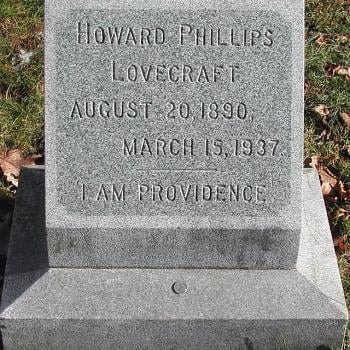Now Featured in the Patheos Book Club
Jesus Behaving Badly
The Puzzling Paradoxes of the Man from Galilee
By Mark L. Strauss
It is election season and everybody seems intent on digging up dirt on the candidates. Whether it's Hillary's personal e-mail server, Donald Trump's narcissism and sexism, Ben Carson's embellished biography, or Marco Rubio's misuse of GOP credit cards—all "alleged" of course!— there seems no end in the hunt for dirty laundry.
So how would Jesus of Nazareth fare in an election campaign? Not so well, I would guess. He said and did some remarkably controversial and provocative things—things that would no doubt have the pundits going nuts. Here's a top-ten list of Jesus' politically incorrect words and actions:
1. Angry, name-calling Jesus
Jesus told people to "turn the other cheek" instead of lashing back, but then he seemed to ignore his own counsel. He railed against the religious leaders and called them all kinds of names: fools, blind guides, hypocrites, murderers, brood of vipers ("your momma was a snake"), tombs with rotting corpses inside, hell's offspring (see Matt. 23). Why such name-calling? Did Jesus have anger issues?
2. Anti-religion Jesus
Jesus made a whip of cords and attacked merchants selling goods and exchanging money in the Jerusalem temple (Mark 11:15). These groups provided essential services for the good functioning of the temple, exchanging money to pay the temple tax and providing Jewish pilgrims with unblemished sacrificial animals. So why did Jesus get so angry?
3. Extremist Jesus
Jesus apparently encouraged his disciples to practice self mutilation. He said that if your eye caused you to sin, you should gouge it out and throw it away. And if your hand caused you to sin, you should chop it off and throw it away (Matt. 5:29-30). What would happen if we took these commands literally?
4. Environmentally unfriendly Jesus
When he was hungry, Jesus cursed a fig tree because it didn't have any fruit on it —even though it was not the season for figs! The poor tree withered and died (Matt. 21:19; Mark 11:13, 20). On another occasion he sent 2000 pigs to a horrific death, drowning in the sea (Matt. 8:32; Mark 5:13; Luke 8:33). Did Jesus have no regard for plant and animal life?
5. Anti-family Jesus
Jesus said that no one could be his disciple unless they hated their own family: "If anyone comes to me and does not hate father and mother, wife and children, brothers and sisters—yes, even their own life—such a person cannot be my disciple" (Luke 14:26). Once when his brothers and sisters came to see him, he refused to acknowledge that they were his family, pointing to his disciples as his real brothers and sister (Mark 3:33–34). Did Jesus repudiate the traditional family?
6. Racist Jesus
Jesus called non-Jews "dogs" (Matt. 15:26; Mark 7:27) and told his disciples not to extend their ministries to Gentiles or to the Samaritans (Matt. 10:5). Did Jesus consider his own people to be superior to other races?
7. Chauvinistic Jesus
While Jesus had some women followers, he appointed twelve men to his senior leadership board (Matt. 10:2–4). If Jesus was so counter-cultural for his day, why did he give the boys all the good jobs?
8. Miscalculating Jesus
Jesus told his followers that they would not finish preaching through the cities of Israel before the Son of Man returned (Matt. 10:23). He said that the present generation would not pass away before end-time events played themselves out (Mark 13:10) and that some of his disciples would not die before they saw the kingdom of God come in power (Mark 9:1). Was Jesus mistaken in these predictions?
9. Perfectionist, hell-fire Jesus
Jesus demanded perfection from his followers (Matt. 5:48) and warned that most people were on their way straight to hell (Matt. 7:13–14). Was Jesus overbearing and condemnatory towards people?
10. Violence-provoking Jesus
Jesus said that his mission was to bring fire to the earth (Luke 12:49). He did not come to bring peace, but a sword and division, and to turn families against one another (Matt. 10:34; Luke 12:52–53). As his enemies closed in on him he told his disciples to sell their coats and buy swords (Luke 22:36). Was Jesus provoking violent revolution?
These things don't seem much like the mild-mannered "Mr. Rogers" Jesus we find in Sunday school. Yet behind these puzzling and disturbing words and actions of Jesus, we find a revolutionary and world-changing message, one intended to turn the world upside down and to change the course of human history. When Jesus is at his most provocative, he is at his most profound. When he is most controversial, we come closest to the core of his vision, mission and purpose—the breaking power of the kingdom of God.
11/16/2015 5:00:00 AM




